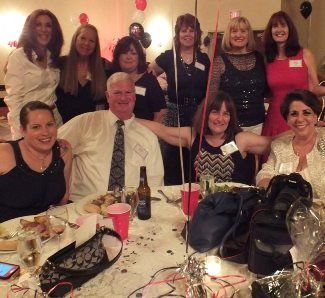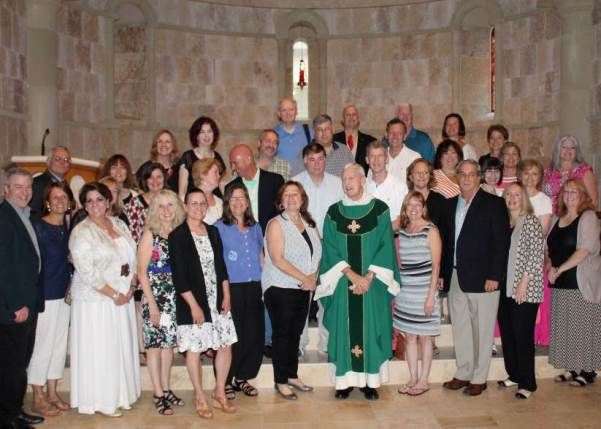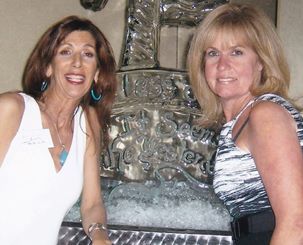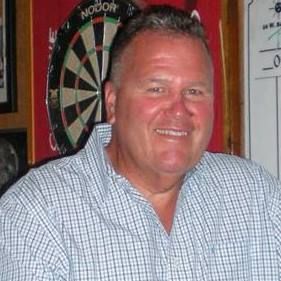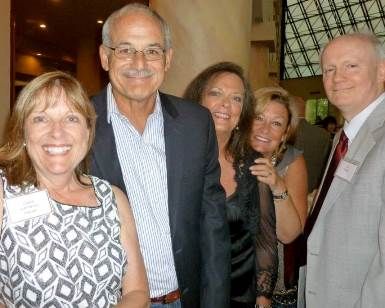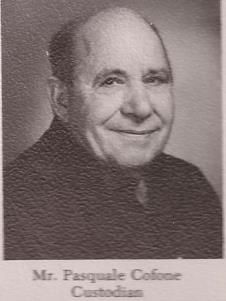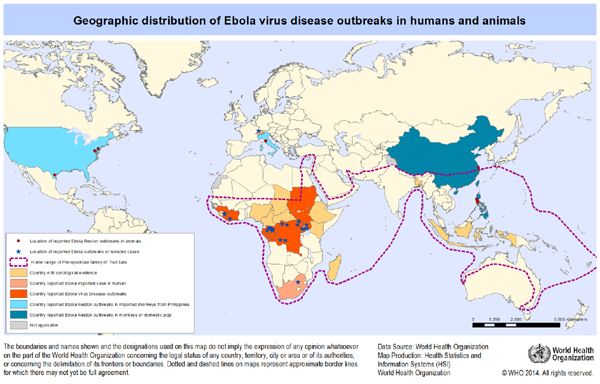An historic event is taking place in Washington D.C. this week. The U.S.-Africa Leaders Summit
August 4-6
“I do not see the countries and peoples of Africa as a world apart; I see Africa as a fundamental part of our interconnected world – partners with America on behalf of the future we want for all of our children. That partnership must be grounded in mutual responsibility and mutual respect.”
President Obama
President Obama in August will welcome leaders from across the African continent to the Nation’s Capital for a three-day U.S.-Africa Leaders Summit, the first such event of its kind. This Summit, the largest event any U.S. President has held with African heads of state and government, will build on the President’s trip to Africa in the summer of 2013 and it will strengthen ties between the United States and one of the world’s most dynamic and fastest growing regions. Specifically, the August 4-6 Summit will advance the Administration’s focus on trade and investment in Africa and highlight America’s commitment to Africa’s security, its democratic development, and its people. At the same time, it will highlight the depth and breadth of the United States’ commitment to the African continent, advance our shared priorities and enable discussion of concrete ideas to deepen the partnership. At its core, this Summit is about fostering stronger ties between the United States and Africa.
The theme of the Summit is “Investing in the Next Generation.” Focusing on the next generation is at the core of a government’s responsibility and work, and this Summit is an opportunity to discuss ways of stimulating growth, unlocking opportunities, and creating an enabling environment for the next generation.
A week before the Summit President Obama greeted young leaders:
President Obama delivers remarks at the Washington Fellowship for Young African Leaders Presidential Summit Town Hall in Washington, D.C., July 28, 2014.
The YALI Network provides virtual resources and vibrant physical spaces to equip young African leaders with the skills and connections they need to foster change in their communities and their countries. Established by the President in April 2014, the Network already includes more than 68,000 members. Using yali.state.gov and social media, the United States provides online courses and materials, and connects members with global leaders in their field. Over the next year, President Obama will continue to engage the YALI Network through virtual town halls.
The Mandela Washington Fellowship for Young African Leaders
On July 28, 2014, in front of 500 exceptional young leaders, President Obama announced the renaming of the Washington Fellowship for Young African Leaders in honor of Nelson Mandela. He also announced that the United States intends to double the number of annual participants in the Mandela Washington Fellowship to 1000 by the summer of 2016.
Mandela Fellows facebook, YALI photos.
First Lady Michelle Obama addressed the young leaders to enthusiastic applause.
She placed specific emphasis on young women and education.
Now, one of the issues that I care deeply about is, as John alluded to, girls’ education. And across the globe, the statistic on this issue are heartbreaking. Right now, 62 million girls worldwide are not in school, including nearly 30 million girls in Sub-Saharan Africa. And as we saw in Pakistan, where Malala Yousafzai was shot in the head by Taliban gunmen, and in Nigeria where more than 200 girls were kidnapped from their school dormitory by Boko Haram terrorists, even when girls do attend school, they often do so at great risk.
And as my husband said earlier this week, we know that when girls aren’t educated, that doesn’t just limit their prospects, leaving them more vulnerable to poverty, violence and disease, it limits the prospects of their families and their countries as well.
Now, in recent years, there’s been a lot of talk about how to address this issue, and how we need more schools and teachers, more money for toilets and uniforms, transportation, school fees. And of course, all of these issues are critically important, and I could give a perfectly fine speech today about increasing investments in girls’ education around the world.
But I said I wanted to be honest. And if I do that, we all know that the problem here isn’t only about resources, it’s also about attitudes and beliefs. It’s about whether fathers and mothers think their daughters are as worthy of an education as their sons. It’s about whether societies cling to outdated laws and traditions that oppress and exclude women, or whether they view women as full citizens entitled to fundamental rights.
So the truth is, I don’t think it’s really productive to talk about issues like girls’ education unless we’re willing to have a much bigger, bolder conversation about how women are viewed and treated in the world today. (Applause.) And we need to be having this conversation on every continent and in every country on this planet. And that’s what I want to do today with all of you, because so many of you are already leading the charge for progress in Africa.
Now, as an African American woman, this conversation is deeply personal to me. The roots of my family tree are in Africa. As you know, my husband’s father was born and raised in Kenya — (applause) — and members of our extended family still live there. I have had the pleasure of traveling to Africa a number of times over the years, including four trips as First Lady, and I have brought my mother and my daughters along with me whenever I can. So believe me, the blood of Africa runs through my veins, and I care deeply about Africa’s future. (Applause.)
Now, the status of women in Africa is also personal to me as a woman. See, what I want you all to understand is that I am who I am today because of the people in my family — particularly the men in my family — who valued me and invested in me from the day I was born. I had a father, a brother, uncles, grandfathers who encouraged me and challenged me, protected me, and told me that I was smart and strong and beautiful. (Applause.)
After her speech, there were many hugs.
‘Billions’ on table at Africa summit in US
Administration officials have played down questions over whether the summit is in response to China’s growing presence in the continent.
Instead, they say American interests go beyond Africa’s oil and minerals, areas on which some say China is focused.
“You will see a series of announcements on agriculture and food, and power and energy,” Rajiv Shah, the administrator of the US Agency for International Development (USAID), told the Reuters news agency.
“We will make big announcements that demonstrate these are big ambitions we can take on with our African partners and the private sector.”
Shah said there will be new support for Power Africa, a privately funded program launched by President Barack Obama last year to install 10,000 megawatts of new generation capacity and connect 20 million new customers across Africa by 2018.
The U.S. is set to unveil nearly $1 billion in business deals, more funding for peacekeeping, and billions of dollars for food and power programs during the three-day summit. China, Europe and Japan have all held similar events to encourage investment in Africa, but the White House denies its Africa Summit is in response to increasing investment in Africa from China.
U.S. businesses have generally been hesitant to invest in Africa despite the high growth rates seen in many countries. Billions of dollars in new funding is expected to be announced for Power Africa during the summit. The program’s goal is to add 10,000 megawatts of generation capacity and 20 million new electric customers in Africa by 2018. Private industry has committed $7 billion to the program since it was announced last year by President Obama.
Countries have also said they will use the summit to lobby their interests in the U.S. For example, South Africa has already said its delegation will push for a 15-year extension of the African Growth and Opportunity Act. The law gives eligible Sub-Saharan Africa countries preferential treatment in their exports to the U.S., but the program that began in 2000 is set to expire next year.
Excluded
U.S. officials say only four African leaders were excluded from the talks – the presidents of Zimbabwe, Sudan, Eritrea and the Central African Republic.
The summit convenes at the same time several West African nations are facing an Ebola virus outbreak. President Obama said Friday the United States is closely following the situation. He said African officials from at-risk countries will be screened for the disease before entering the U.S. The leaders of Sierra Leone and Liberia have canceled their summit trips to Washington because of the Ebola outbreak.
I decided to post the complete list of invited attendees, since rarely do we see their names in the U.S. press, unless it is a country in the middle of a crisis.
Algeria: Delegation headed by Prime Minister Abdelmalek Sellal
Angola: Delegation headed by Vice President Manuel Domingos Vicente
Benin: Delegation headed by President Boni Yayi
Botswana: Delegation headed by Foreign Minister PhAndu Tombola Chanda Skelemani
Burkina Faso: Delegation headed by President Blaise Compaore
Burundi: Delegation headed by President Pierre Nkurunziza
Cabo Verde: Delegation headed by President Jorge Carlos de Almeida Fonseca
Cameroon: Delegation headed by President Paul Biya
Chad: Delegation headed by President Idriss Deby Itno
Comoros: Delegation headed by President Ikililou Dhoinine
Cote d’Ivoire: Delegation headed by Prime Minister Daniel Kablan Duncan
Democratic Republic of the Congo: Delegation headed by President Joseph Kabila Kabange
Djibouti: Delegation headed by President Ismail Omar Guelleh
Egypt: Delegation headed by Prime Minister Ibrahim Mahlab
Equatorial Guinea: Delegation headed by President Teodoro Obiang Nguema Mbasogo
Ethiopia: Delegation headed by Prime Minister Hailemariam Desalegn Boshe
Gabon: Delegation headed by President Ali Bongo Ondimba
Ghana: Delegation headed by President John Dramani Mahama
Guinea: Delegation headed by President Alpha Condé
Guinea Bissau: Delegation headed by President Jose Mario Vaz
Kenya: Delegation headed by President Uhuru Kenyatta
Lesotho: Delegation headed by Prime Minister Motsoahae Thomas Thabane
Liberia: Delegation headed by Vice President Joseph Nyuma Boakai, Sr.
Libya: Delegation headed by Prime Minister Abdalla Alteni
Madagascar: Delegation headed by President Hery Rajaonarimampianina
Malawi: Delegation headed by President Arthur Peter Mutharika
Mali: Delegation headed by President Ibrahim Boubacar Keita
Mauritania: Delegation headed by President Mohamed Ould Abdel Aziz
Mauritius: Delegation headed by Prime Minister Navinchandra Ramgoolam
Morocco: Delegation headed by Prime Minister Abdel-Ilah Benkiran
Mozambique: Delegation headed by President Armando Emílio Guebuza
Namibia: Delegation headed by President Hifikepunye Lucas Pohamba
Niger: Delegation headed by President Issoufou Mahamadou
Nigeria: Delegation headed by President Goodluck Ebele Jonathan
Republic of the Congo: Delegation headed by President Denis Sassou-Nguesso
Rwanda: Delegation headed by President Paul Kagame
São Tomé and Príncipe: Delegation headed by Prime Minister Gabriel Arcanjo Ferreira da Costa
Senegal: Delegation headed by President Macky Sall
Seychelles: Delegation headed by President James Alix Michel
Sierra Leone: Delegation headed by Foreign Minister Samura Kamara
Somalia: Delegation headed by President Hassan Sheikh Mohamud
South Africa: Delegation headed by President Jacob Gedleyihlekisa Zuma
South Sudan: Delegation headed by President Salva Kiir Mayardit
Swaziland: Delegation headed by King Mswati III
Tanzania: Delegation headed by President Jakaya Mrisho Kikwete
The Gambia: Delegation headed by President Alhaji Dr. Yahya A.J.J. Jammeh
Togo: Delegation headed by President Faure Essozimna Gnassingbé
Tunisia: Delegation headed by President Mohamed Moncef Marzouki
Uganda: Delegation headed by President Yoweri Kaguta Museveni
Zambia: Delegation headed by Vice President Guy Scott
The TM has paid some attention to the attendees – but placed more emphasis on who wasn’t invited:
The African leaders who haven’t been invited to D.C. – and the surprising ones who were
Before the Summit Susan Rice was the narrator of this promotional video.
I’m sure right-wing heads are exploding about all of this. Our African-American President is hosting Africans. Must prove some warped Trump CT.
From my perspective, I’m glad to see this happen. The continent of Africa is vast. Its people’s are some of the most diverse in the world. With all the current problems that we see in blaring headlines daily, there is so much more that we don’t see. The potential for the future. This is a step in the right direction.
cross-posted from Black Kos













